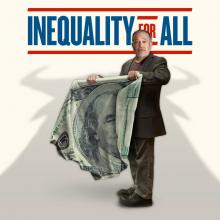billionaires

We must reject the idea that wealth has any bearing on a person’s true acumen, potential, or value. This is harder than we might think and takes some deliberate work. Frankly, it might be harder and more important to rethink our ideas around poverty, recognizing that a person’s lack of money doesn’t tell you anything about the value of who they are, what they’re capable of, or what they have to offer the world.

BY NOW, MOST of us have been affected by problems with the “supply chain.” It started last year with shelves void of toilet paper, then morphed into a lack of other manufactured goods, including construction materials, cars, and medical equipment.
Other than this being a (sometimes serious) nuisance, why should people of faith take notice? From our perspectives—as a theologian and a developer of worker-owned cooperatives—the broken supply chain throws light on some of our deepest economic and political problems.
The current shortage of goods and services is often attributed to the COVID-19 pandemic. Its roots, however, are in an economic system designed to produce maximum profits for the few rather than the many by outsourcing production. The “few” are called shareholders and the “many” are those who work for a living. While many working people also own some shares, the bulk of profit in this system goes to those with the largest portfolios and majority positions. No wonder U.S. billionaires have gained more than $2 trillion since the pandemic began.

Robert Reich pulls up in his silver Mini Cooper, quipping that he and his car are in proportion to each other. Reich, former Secretary of Labor in the Clinton administration, identifies himself with the underdog, the little man.
His new movie, Inequality for All, looks into the effects of wealth inequality in the United States. Throughout this semi-autobiographical documentary, Reich consistently leans on his self-deprecating sense of humor by poking fun at his own physical stature; he’s 4’10 ½’’ tall. The jokes, however, do lead back to the heavier issue at hand – the American worker is getting squeezed out of the middle class.

Forget Wall Street. Today's "best and brightest" are heading to California's Silicon Valley and New York's Silicon Alley, and to a few other tech-startup hot spots.
Thousands of aspiring engineers, web developers, designers and marketers live in dormitories, work in open-floor bullpens, attend coding competitions to enhance their skills, and work hours that defy body chemistry. It sounds like fun.
Some work on projects that make a positive contribution to society; some are coding games, entertainment apps, and schemes to monetize friendships.
They take stock for pay and wait for the magic letters "IPO" to appear. Meanwhile, their employers fight for their loyalty with free food and party-on office cultures.
The brass ring they chase looks like Marissa Mayer, the 37-year-old former Google star who was tapped to lead Yahoo out of its extended doldrums. Like any public person, Mayer is painted in stark colors: as both immensely talented and merely lucky, an inspiring leader and a rude monster, likely to succeed and sure to fail.